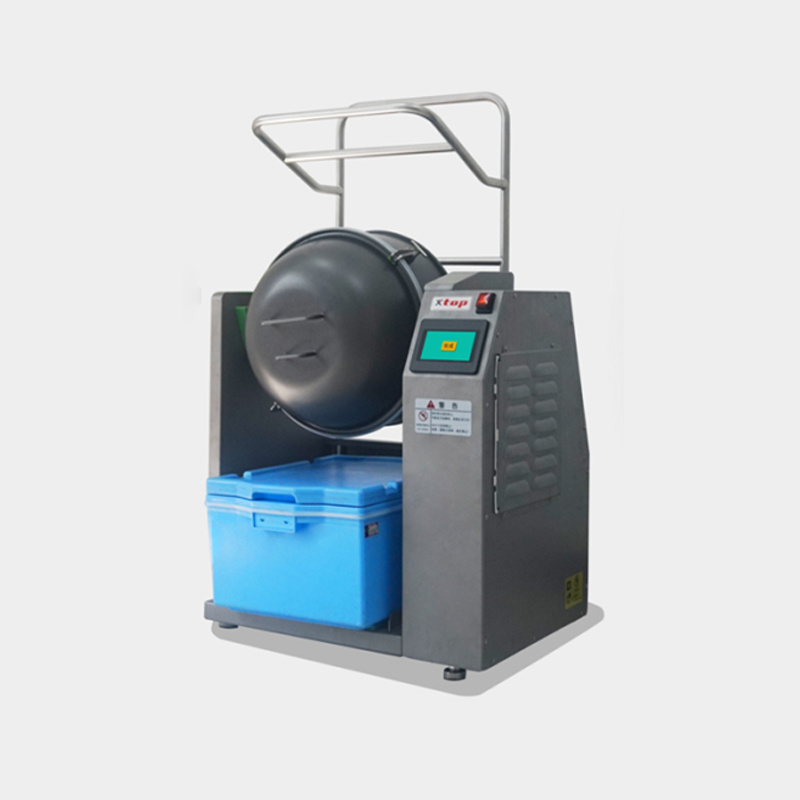Unlocking the Benefits of Intelligent Conveyor Systems in Warehousing
Release Time:2025-10-01
Unlocking the Benefits of Intelligent Conveyor Systems in Warehousing
Table of Contents
- Introduction to Intelligent Conveyor Systems
- What Are Intelligent Conveyor Systems?
- Advantages of Intelligent Conveyor Systems in Warehousing
- How Intelligent Conveyor Systems Work
- Key Features of Smart Conveyor Systems
- Implementing Intelligent Conveyor Systems in Your Warehouse
- Case Studies and Success Stories
- Future Trends in Intelligent Conveyor Systems
- Frequently Asked Questions
- Conclusion
Introduction to Intelligent Conveyor Systems
In an era of rapid technological advancement, **warehousing and logistics** are being transformed by smart solutions that enhance operational efficiency. One such innovation is the **intelligent conveyor system**, which integrates advanced technologies to streamline the movement of goods within a warehouse. As the food storage and transportation industry continues to grow, understanding the benefits of these systems becomes crucial for businesses aiming to stay competitive.
What Are Intelligent Conveyor Systems?
Intelligent conveyor systems are automated material handling systems that utilize **sensors, software, and robotics** to facilitate the movement of products within a warehouse. Unlike traditional conveyor systems, these smart systems are capable of self-monitoring, adapting to changing conditions, and communicating with other warehouse technologies. This interconnectedness allows for improved data collection, real-time tracking, and enhanced decision-making processes.
Types of Intelligent Conveyor Systems
1. **Modular Conveyor Systems**: These systems can be easily reconfigured to meet changing needs, making them highly adaptable.
2. **Automated Guided Vehicles (AGVs)**: Used alongside conveyors, AGVs transport items to and from conveyor systems autonomously.
3. **Robotic Arms**: These are often integrated to pick and place items on conveyors, enhancing automation capabilities.
Advantages of Intelligent Conveyor Systems in Warehousing
Adopting intelligent conveyor systems offers a multitude of benefits to warehouses, especially in the **food storage and transportation** industry. The following advantages are particularly noteworthy:
1. Enhanced Operational Efficiency
By automating the movement of goods, intelligent conveyor systems significantly reduce the time required for manual handling. This leads to faster order processing and improved throughput.
2. Reduced Labor Costs
Labor costs can be a heavy burden on warehouse operations. Intelligent conveyor systems minimize the need for manual labor, allowing businesses to allocate resources more effectively and reduce overall labor costs.
3. Improved Inventory Management
With real-time tracking and data collection, intelligent conveyor systems provide better visibility into inventory levels. This helps businesses maintain optimal stock levels and reduces waste, especially critical in the food industry where perishables are concerned.
4. Increased Safety
Automated systems enhance workplace safety by reducing the likelihood of accidents associated with manual handling. The advanced sensors in intelligent conveyor systems can detect obstacles and adjust operations accordingly.
5. Flexibility and Scalability
These systems can be easily expanded or modified as business needs change. This flexibility allows warehouses to adapt to increased demand without significant infrastructure changes.
How Intelligent Conveyor Systems Work
The operation of intelligent conveyor systems involves a combination of hardware and software components that work in unison to optimize material handling.
1. Sensor Technology
Sensors play a vital role in monitoring the movement of goods. They detect the presence of items on the conveyor, track their location, and gather data about their weight and dimensions.
2. Control Software
The control software processes data from sensors and makes real-time decisions regarding the operation of the conveyor. This enables efficient routing, scheduling, and prioritization of tasks.
3. Integration with Warehouse Management Systems (WMS)
Intelligent conveyor systems often integrate with WMS to provide comprehensive oversight of inventory and operations. This ensures seamless communication across various systems and departments.
Key Features of Smart Conveyor Systems
To fully appreciate the capabilities of intelligent conveyor systems, it’s important to understand their key features:
1. Real-Time Data Analytics
The ability to analyze data in real-time allows operators to make informed decisions quickly, optimizing operations and addressing issues as they arise.
2. Predictive Maintenance
Using data analytics, these systems can predict when maintenance is required, reducing downtime and ensuring continuous operation.
3. Adaptive Routing
Intelligent conveyor systems can automatically adjust the routing of products based on demand, ensuring that high-priority items are processed first.
Implementing Intelligent Conveyor Systems in Your Warehouse
Transitioning to intelligent conveyor systems may seem daunting; however, careful planning and execution can facilitate a successful integration.
1. Assess Current Operations
Before implementation, conduct a thorough assessment of current operations to identify inefficiencies and areas of improvement.
2. Define Objectives
Establish clear objectives for what you aim to achieve with the new system, such as reducing lead times or improving inventory accuracy.
3. Choose the Right Technology
Select a system that aligns with your warehouse’s specific needs. Consider factors such as the types of products handled, the volume of goods, and existing infrastructure.
4. Train Your Team
Proper training for staff is essential to ensure smooth operation and maximize the benefits of the new system.
Case Studies and Success Stories
Examining real-world implementations of intelligent conveyor systems can provide valuable insights.
Case Study 1: Large Food Distribution Center
A leading food distribution center incorporated an intelligent conveyor system that reduced order fulfillment time by 30%. By automating the picking and packing process, the facility was able to handle a higher volume of orders with fewer errors.
Case Study 2: Beverage Manufacturer
This manufacturer implemented a smart conveyor system that integrated with their existing WMS. As a result, they achieved a 20% increase in efficiency and a significant reduction in product spoilage due to improved inventory management.
Future Trends in Intelligent Conveyor Systems
The future of intelligent conveyor systems is bright, with several emerging trends that promise to enhance their capabilities further.
1. Artificial Intelligence and Machine Learning
As AI technology advances, intelligent conveyor systems will become even more adept at optimizing operations, predicting demand, and reducing errors.
2. Sustainability Initiatives
The focus on sustainability will drive the development of energy-efficient conveyor systems and practices that reduce waste, especially relevant in the food industry.
3. Advanced Robotics Integration
The integration of advanced robotics will enable even greater automation, further streamlining operations within warehouses.
Frequently Asked Questions
1. What is the main benefit of intelligent conveyor systems?
The main benefit is improved operational efficiency, which leads to faster order processing and reduced labor costs.
2. How do intelligent conveyor systems improve safety?
By reducing manual handling and implementing advanced sensors, the risk of workplace accidents is significantly lowered.
3. Are intelligent conveyor systems customizable?
Yes, these systems can be tailored to meet specific operational needs and can easily adapt to changes in warehouse conditions.
4. What industries benefit from intelligent conveyor systems?
While they are particularly advantageous for the food storage and transportation industry, any sector dealing with large volumes of goods can benefit.
5. What is the future of conveyor systems in warehousing?
The future includes trends such as AI integration, sustainability efforts, and advanced robotics, which will continue to enhance their effectiveness.
Conclusion
In conclusion, intelligent conveyor systems present a remarkable opportunity for warehouses, especially within the food storage and transportation sector. The **benefits** of enhanced efficiency, reduced costs, and improved safety are compelling reasons for businesses to invest in this technology. As warehouse operations become increasingly complex, the integration of intelligent conveyor systems will be vital for maintaining competitiveness and meeting customer demands. Embracing this smart technology today will pave the way for a more efficient and profitable future in warehousing.
Keywords:Intelligent Conveyor System
CATEGORY
Related News
2024-02-03











